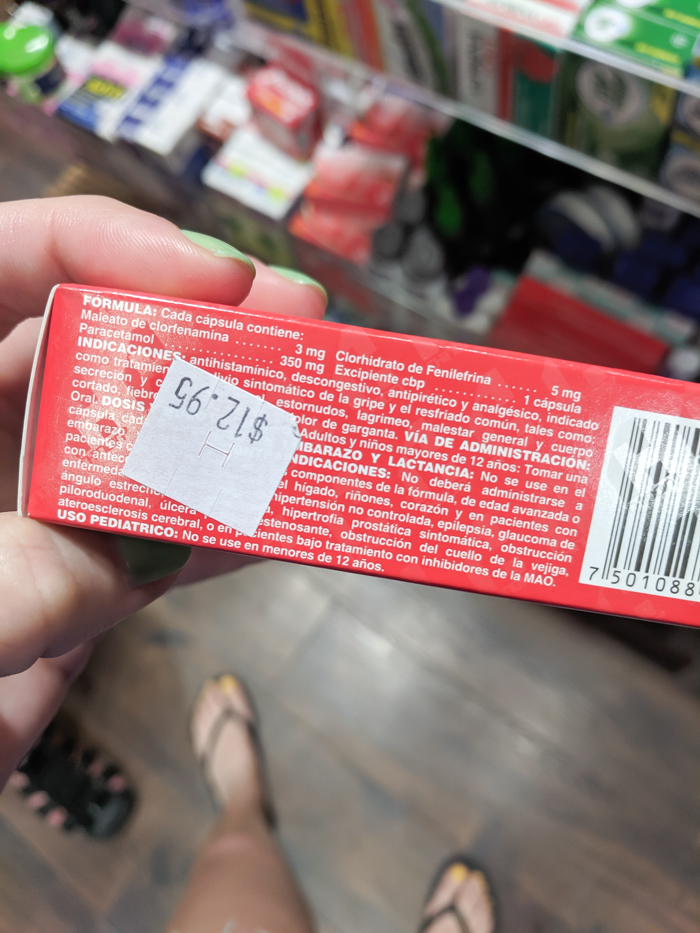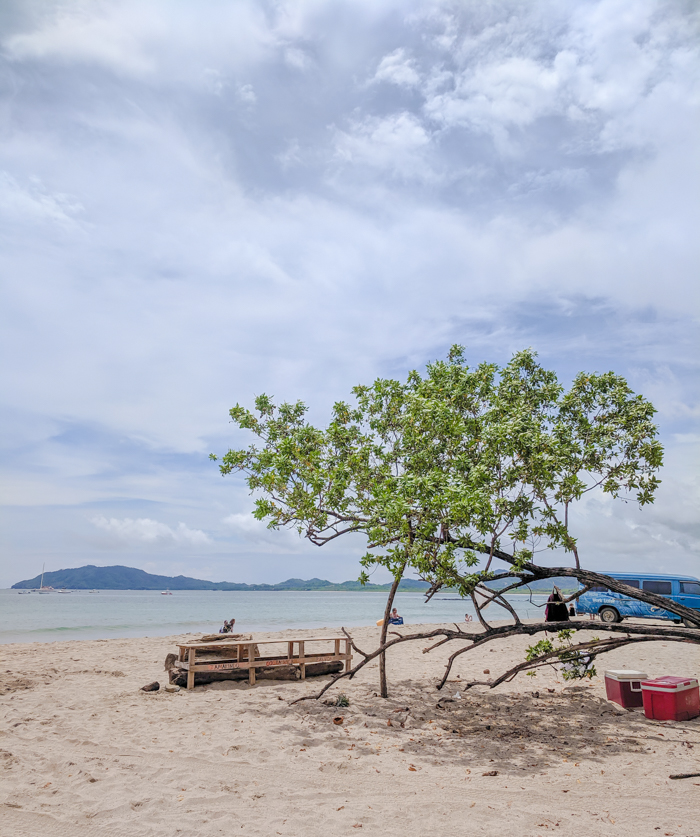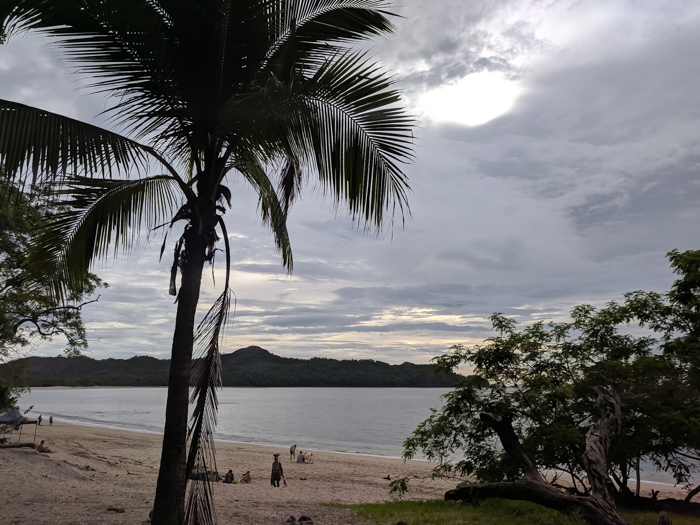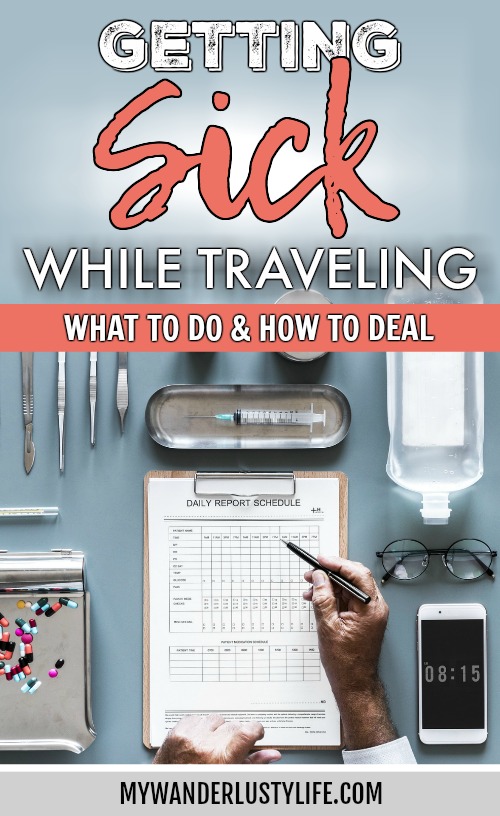Pardon my self-deprecation here, but there are few things I’m better at than getting sick while traveling. I’m a terrible cook; I’m completely tone-deaf; and I’m a mediocre athlete at best.
On a visit to my childhood home a few years ago, I proudly showed off my stash of swimming ribbons to my husband who replied, “Ashley… this says 14th place….” However, there’s one thing I’m a damn pro at, and that’s getting sick while traveling.
I’ve gotten sick while traveling to points all over the globe. I’ve been sick on 4 out of 7 continents—and that’s only because I haven’t been to the other three. You know that inevitable pandemic Hollywood has been preparing us for our whole lives? Mark my words, Ashley “Patient Zero” Smith will be at the center of it all. (This post was originally written in July of 2019 when none of us had a clue what was coming. Oops. Also, wow Hollywood did not prepare us.)
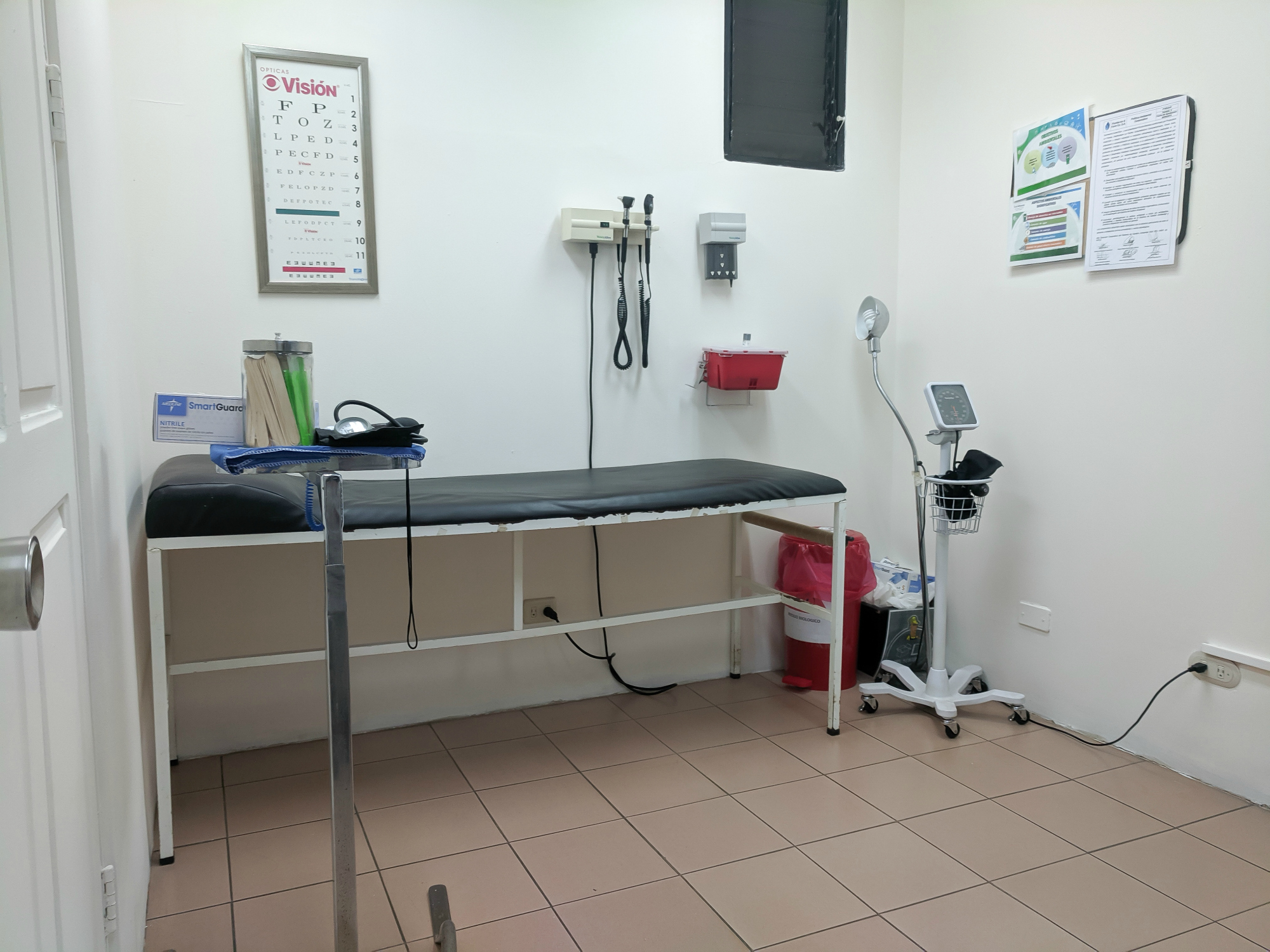
Getting sick while traveling abroad
In Taiwan I developed a pollution-related bacterial infection in my skin. In Italy I spent three months suffering an allergy to the entirety of Tuscany, with the added bonus of having a severe allergic reaction to something I ate (which was most likely delicious and totally worth it).
I contracted back-to-back food poisonings on flights from the U.S. to London and then again from the U.S. to France. Then I fell victim to altitude sickness in Peru and Mexico and the world’s worst sunburn in Belize. I got seriously ill in Montenegro and thus has to miss out on Croatia too.
I came down with the flu in Germany, Spain, Taiwan, on my honeymoon in Hawaii, and most recently in Costa Rica. In Germany I was bitten by a street cat which, honestly, I’m shocked hasn’t happened to me more often. And in Nashville I don’t know WTF was wrong with me but my symptoms included openly weeping in public, so that was fun.
Getting sick while traveling is actually no fun at all, but, what doesn’t kill you… makes for good blog posts. I’ve learned a lot from getting sick while traveling and I’ve learned it all the hard way. So you don’t have to!
Disclaimer
─
I am not any kind of medical professional. A fact I’m sure is blatantly obvious, but still. Legal reasons. Safety. Yada yada. I am not trying to give you medical advice, I am only relaying my personal experiences of getting sick while traveling abroad so you can better deal with it when it happens to you. For everything else, seek professional help. 🙂
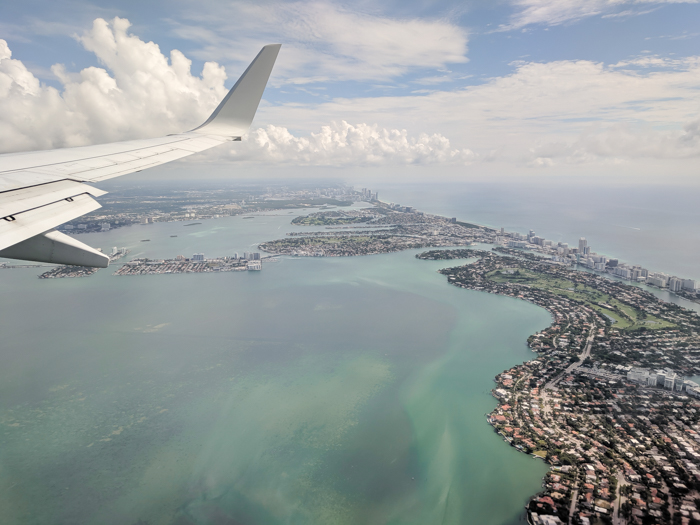
How to prepare for getting sick while traveling
Here is where I would put some recommendations of how to avoid getting sick while traveling, if I was going to do that. Which I’m not. I am not a medical professional and certainly don’t feel qualified to give you medical advice. (Competitive swimming wasn’t the only thing I came dead last in.)
Sure, I studied in college alongside all the pre-med students, but I studied animal biology so, at best, I could keep you moist until help arrives if you happen to beach yourself.
Instead, I’m going to help you deal with getting sick while traveling. Because, no matter how hard you work at avoiding it, sickness be like: “I have a particular set of skills, skills I have acquired over a very long career, skills that make me a nightmare for people like you. I will look for you, I will find you, and I will kill you.” Ehh, in retrospect maybe the ransom speech from Taken wasn’t the best quote to draw from…
Travel insurance
First things first, are you considering travel insurance? None of us really plan on getting sick while traveling, but isn’t that the definition of “insurance?” Like, I don’t plan on my house getting hit by a meteorite, but I’m covered in case it does.
Besides non-illness related things like lost or delayed luggage, flight delays, etc., travel insurance can possibly also cover things like:
- Incurred medical expenses
- Emergency evacuation and repatriation
- If you have to cut your trip short because of illness or injury (like the girl I met in the Costa Rica airport who broke her arm after crashing her ATV)
- Pre-paid bookings you missed because you got sick while traveling (like the catamaran cruise I paid for but couldn’t take in Costa Rica)
- And so much more. (Though all plans are different.)
Peace of mind
However, the one thing I find the most value in is peace of mind. For instance, when I contracted the flu in Costa Rica, I got it fast, I got it bad, and I got it after the closest medical office had already closed for the day, naturally.
It would be another 15 hours before the clinic would open again. However, when I woke up at 2:00 am with stabbing pains in my abdomen, I knew I needed to hit up the resort ER immediately. And, since I had travel insurance, I didn’t hesitate for one second to wake my husband up and make him try to communicate with the Spanish-speaking operator. I didn’t care how much it was going to cost me—I knew I needed help.
Had I not had travel insurance, all I would have seen would’ve been dollar signs. That kind of thinking is enough to make a person try to “wait it out” which could potentially equal disaster. Thinking how much emergency medical care could cost you financially, could end up costing you a lot more if you put off getting the help you need.
Know how to get help
So, you’ve planned out where you’ll stay, all the sites you want to see, the restaurants you want to eat at, how you’ll get from one point to another… but do you have a plan for if you get sick while traveling?
What to do in case this happens should always be a part of your travel plans. Just like researching where to get the most instagrammable gelato. Just like coming up with a game plan for what to do in case you run into George Clooney. Trust me, it’s definitely easier than trying to figure out WTF to do when you’re there and everything is in Mandarin.
Here are some helpful things to know beforehand to help soften the blow of getting sick while traveling:
At the very least, know how to say the word “help” in the local language.
No one is going to come to your aide if they think you’re just a shouting maniac who’s off his/her meds. But if they hear you need help, that’s a good start at getting some.
Here’s the link for Google Translate. (It also comes as an app that you can use offline when you travel–Google Play / App Store.) Be sure to click the little blue speaker to hear how to actually pronounce the word.
Also check out
─
If your cases of getting sick while traveling include motion sickness, check out my post on the permanent motion sickness cure that changed my life. Maybe it can help you too!
Know the phone number for emergencies in the countries you’ll be traveling in.
Here in the U.S. we’re more than familiar with 9-1-1. But calling 9-1-1 won’t help you everywhere you go. For example, in European countries that number is 112, in Hong Kong it’s 999, and in Colombia it’s 123.
Some countries, like Chile, Norway, and most in Africa and Asia use three different numbers—one for police, one for ambulance, and one for fire emergencies. Click here for the list of countries and their emergency phone numbers.
Remember those women last year who got stuck in an elevator in Lisbon, Portugal? And mistakenly called 911, only to get a dispatcher in Lisbon, Maine? Yeah, they’re still in there. It’s a real Schrodinger’s Cat situation.
Just kidding they got out… eventually.
And also where to find help if you need it, before you need it.
In Costa Rica, I stayed at a fancy pants resort so I just had to dial zero. However, I already knew where to find the medical center because two days earlier my husband sliced his leg open climbing into the shuttle bus. Then I went there again when I thought I broke my toe in the pool. We’re great travelers, obviously.
In Germany, everyone I traveled with had already been sick so finding the nearest pharmacy was just a matter of asking one of my fellow poor, unfortunate souls. In Italy you’ll want to look for the green, light-up crosses signifying the location of a pharmacy where literally no one speaks English but they’re happy to give you all kinds of things without a prescription anyway.
Know the words of the things you are allergic to in the local language.
Translate them ahead of time and write them down on a card you keep in your wallet, especially if your list is as long as mine. (Sorry fellas, I’m taken). You can show this to restaurant servers, market vendors, pharmacists, hospital staff (heaven forbid), or just random people when you feel like showing off.
For example, I’m allergic to almonds—but I’m not going to see almonds written anywhere when I travel. In France I’m going to see amandes, in Mexico it’s almendras, in Germany it’s mandeln, and in Beijing it’s 杏仁.
Actually, even though I translated it myself that could still say “dirty grandmother” and I really wouldn’t know the difference. (Anyone want to confirm this for me?) Maybe for China just make yourself some picture flashcards? I don’t know.
Pro tip
─
Look out for common allergens in sunscreen. And by that I mean, not only did I get the flu on my Hawaiian honeymoon, I also accidentally used a sunscreen containing almond extract for two weeks and couldn’t figure out why the hives covering my face and body kept getting worse. Now, I either travel with my own sunscreen or diligently read labels when purchasing in a foreign country–but know that almond and macadamia nut extracts are common *and sneaky* ingredients in skin products.
Know the generic names for drugs you currently take or are allergic to, not the name brands.
For instance, Tylenol is the brand name for the generic drug Acetaminophen—you’ll be hard pressed to find “Tylenol” worldwide but you will be able to find Acetaminophen, it’ll just go by a different name.
Personally, I’m allergic to Mucinex. (Seriously, jealous yet?) But in other countries when the pharmacist or doctor asks what drugs I’m allergic to, I have to say Guaifenesin, the generic name for the active ingredient in Mucinex. They pretend to understand me, scribble down something random, and just give me whatever they wanna give me anyway. It’s all part of the adventure, right?
But know that you can’t always get what you need in other countries.
Obviously you should take whatever prescription drugs you are taking on your trip with you. Also, make sure you have enough for the duration of your trip and then some, just in case. Not all drugs are available in all countries, and different countries have different drug regulations.
Did I find this out the hard way when my husband ran to the only open pharmacy in Rome looking for something akin to Benadryl only to be asked, “What is this, Benadryl? [insert hand gestures here] What do you mean by food allergy? Take your ‘Zyrtec.’” Yes, the concept of food allergies and Benadryl is simply lost on Italian pharmacists. So that was a fun night.
Spoiler alert: I survived. BUT STILLLLLL!
Know what you’re getting into, i.e., what the local risks are, and how to avoid them.
For instance, traveling to Mexico: the risk? Montezuma’s Revenge, the prevention? Don’t drink the water. That’s why God gave us tequila, duh.
Always check with the U.S. State Department before heading abroad to see all the fun ways you can get sick while traveling. They have information on what health risks certain locations pose and which vaccinations, if any, you should probably get before you go there. You can search for each country on the left side of this page, then scroll down to “Health.”
Know what is normal for you, physically.
For me, I’ve always had low blood pressure (but not as low as you’ll read in a minute, damn). If I didn’t know that beforehand, a medical professional taking my vitals may get a little worried. If you know your baselines (for many things, not just blood pressure), you’ll be better equipped to say what’s “normal” and when to actually worry.
Pack the right stuff
Having a sick while traveling game plan will help you to pack all the right stuff. For instance:
Prescription medications
Don’t forget to pack any prescription medications you take (along with the prescriptions themselves to prove you’re not an international drug smuggler) and pack them in your carry-on (in case your luggage gets lost).
Over-the-counter medications
Bring your personal stock of OTC medications related to your own personal issues and where you”ll be traveling. In my bag you’ll always find: ibuprofen, Zyrtec, Tums, Benadryl, and Pepto. (And by that I mean: ibuprofen, Cetirizine, Calcium Carbonate, Diphenhydramine, and Bismuth subsalicylate.)
Pro tip
─
If you take chewable Pepto Bismol tablets before you go to bed, there’s a prettay good chance you’ll wake up with a black tongue. BEFORE YOU PANIC BECAUSE YOU THINK YOU’VE BEEN POISONED AT DISNEY WORLD, ahem, read the tenth question on this page.
First aid kit
If you’ve got the luggage space, it doesn’t hurt to travel with a small first aid kit because stray and potentially rabid (but adorable) animals abound abroad.
Thermometer
One thing I will personally travel with from now on: a thermometer. The one I use at home I purchased at a convenience store in Maui during my honeymoon.
And on my latest adventures in Central American medicine, I desperately needed a thermometer in Costa Rica (to calculate what I felt was really going to be how much time I had left on this earth)—yet none existed on the entire 5-star resort on which I stayed.
When I called the front desk to ask for a thermometer, they sent a “doctor” to my room who did one thing and one thing only—took my blood pressure. Not only did this “doctor” not have a thermometer anywhere in his little black bag, he also told me my blood pressure was 85/40.
Me: “So you’re telling me I’m… dead?”
The “doctor”: “Okay bye-bye!”
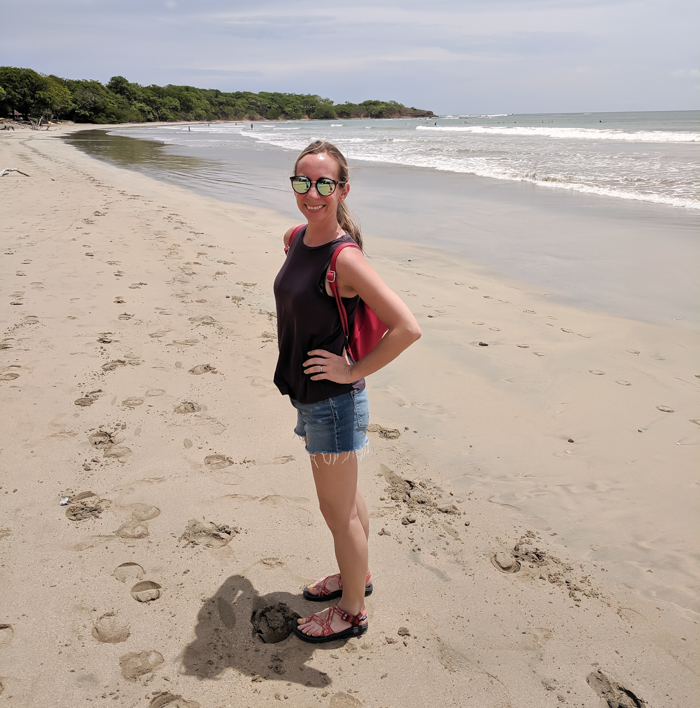
Also check out
─
A thermometer is now among the safety-related travel items I bring on every trip. Find out what the other 16 are in the link above!
If you have to see a doctor
So if you have to see a doctor, you’ll want to remember to collect everything you’ll need to file an insurance claim while you’re there. If you thought when you had to drop trou’ and get a fire-filled needle shoved into your tuchus was the worst of it, you’ve must never have had to file an insurance claim.
Every insurance provider and claim will be different, but you’ll probably need things like an itemized bill of any charges you incurred (butt-shots, medications, etc.) and the actual medical report where your doctor recorded your symptoms–including, but not limited to, “Whoa, you have a lot of gas!”, his/her diagnosis, and the treatment.
Remembering to get a copy of these before you leave the doctor’s office will save you so much time, stress, and money because this is apparently still the ‘90s and long-distance calls to people who you can’t even communicate with in the first place are expensive af. But also, because I’m wearing a scrunchie right now.
Pro tip
─
I was unable to get in touch with the medical center at my resort because of a Spanish-only phone menu that did me no good. So I reached out to the insensitive idiots at Marriott for help, explained my situation, and was told to “call the medical center.” Instead, I bypassed Marriott altogether and reached out directly to the resort via Facebook messenger. I got a quick, helpful response followed by my medical report in my in-box.
How to deal with getting sick while traveling
Look, I’m sorry to have to break this to you, but if you travel enough, you’re eventually going to have to deal with getting sick while traveling.
Now, I’m not sure where you’ll be traveling, but chances are you’re going to be just fine getting medical treatment in a foreign country. Believe it or not, there are people outside the U.S. who practice medicine! In real clinics and hospitals, too!
I say that like a sarcastic bitch because (well, I am, but also because) after telling some people here in Boston about my time getting sick while traveling in Costa Rica, I was met with gasps and looks of horror.
They responded, “Did you have to go see a witch doctor or something?” and “I’d be afraid they’d try some voodoo on me or something!”
I had to explain–to these fellow medical professionals–that they have real doctors in other places besides the United States. Doctors that work in real clinics and wear scrubs and use Western medicine. No spells. No shrunken heads. “Well, I just don’t think I’d be comfortable getting treatment from them.” I said, sometimes you don’t have a choice! Jesus!
I felt so terrible in Costa Rica I would’ve let a truck-driving 8-year-old operate on me at that point. (It would help to know that in Brasilito, CR I saw an 8-year-old driving a pickup truck.) Besides, seeing a witch doctor could probably still keep you alive. I mean, look what it’s done for Keith Richards.
You might like
─
If you got sick while traveling and now you’re stuck at home, check out my post on 17 travel-themed board games for when you’re stuck at home and can’t travel.
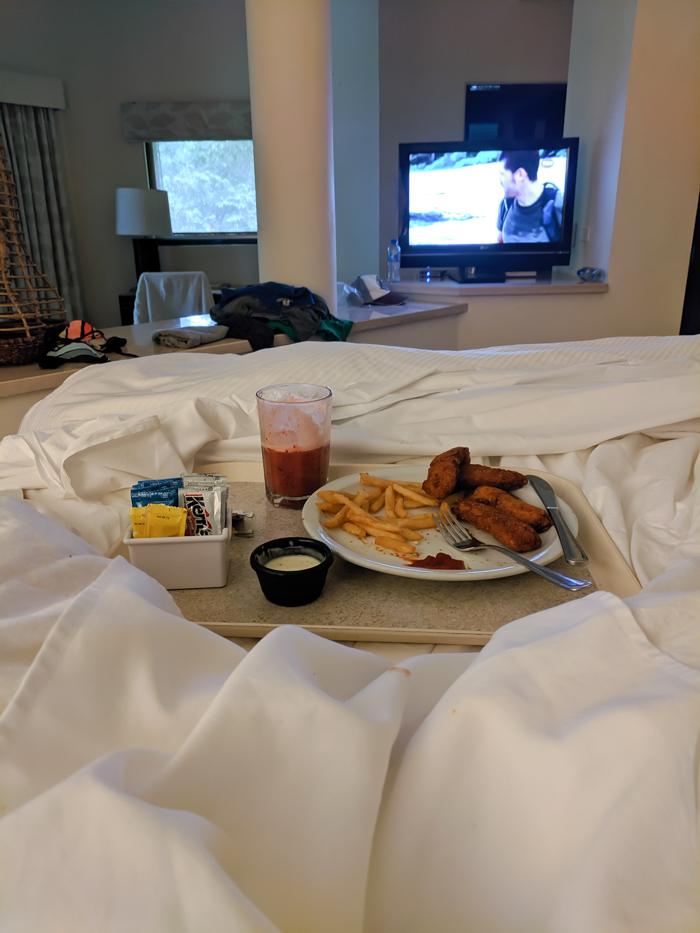
How to deal with getting sick while traveling: physically
Getting sick while traveling is most definitely something you’ll have to deal with. It has the potential to ruin everything—your plans, your fun, and your ability to sit comfortably for about two days. Here are a few ways to handle it:
Don’t push yourself.
Now, my least favorite of all the 4-letter words out there is REST, but that’s what it’s gonna take to feel like a human again. Don’t try to push yourself to visit all the places and do all the things because you won’t get better (you’ll probably get worse actually). Also, going out into the world and spreading your germs won’t be well-received. Haven’t you seen Outbreak?
Don’t take chances.
You know your body better than anyone else, so when you start to feel a little sumpin’ sumpin’ coming on, don’t just wish it away. Accept the soul-sucking symptoms for what they really are and get them treated ASAP.
Besides, it could be something much worse—like my friend Kay who first thought her looming appendicitis was just a hangover.
Maybe don’t self medicate?
In an effort to wait until morning, I picked up some flu medicine from the gift shop at my resort. Turns out, the pain I was certain was my appendix actively bursting was, my doctor said, the flu medicine I took that was simply too strong for me.
You’ll be surprised by how okay you are with the whole thing when you’re sick.
At home, I’d avoid the doctor at all costs, but when I woke up in the middle of the night, in the middle of the jungle in Costa Rica with stabbing pains in my abdomen, I immediately had flashbacks to Kay telling me about her appendix rupturing in Thailand. I was like, “Welp, looks like I’m having emergency surgery in Central America this week!” …and I honestly just didn’t give a shit about it either.
It’s OK to cry.
I don’t care how old you are, when you feel bad, you feel bad. And when someone points a needle in the direction of your derrière, you feel damn pathetic.
I’m a 35-year-old woman who still sobs like a baby when a doctor tells me she’s putting that needle in my butt, not my arm. I apologized for crying and mentioned that tends to happen when needles are involved. She responded, “LOL, yes, it is very painful!” Umm, bedside manner does not translate, methinks. Long story short: don’t be a hero.
Skip the adorable little travel-sized packet of tissues
…and just go straight for the whole roll of toilet paper. Who are you kidding with those dainty things, really? You’re clearly disgusting and everyone around you knows it—just own it!
Wear a mask
And if you have to head back home while you’re still sick–via airplane or public transportation of any kind–wear a mask. Keep your germs to yourselves, people!
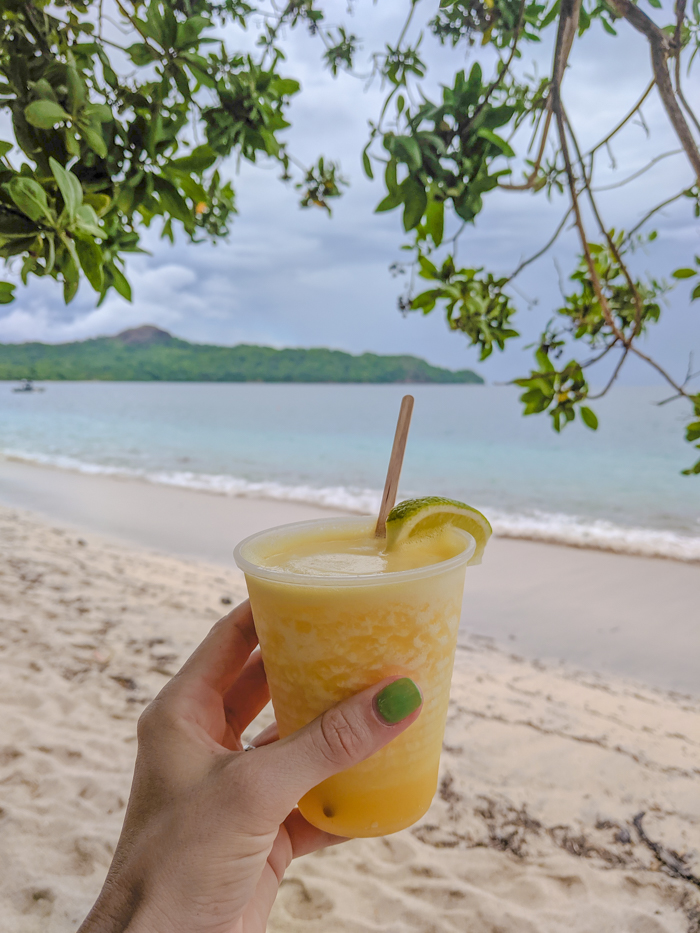
How to deal with getting sick while traveling: mentally
The physical pain (in your ass) will eventually go away, but not before your doctor has to massage the injection site to help disperse the medicine (really, there isn’t any part of this that is not mortifying). It’s the mental trauma that’ll stick around like your used tissues to the inside of your purse.
Understand you aren’t invincible.
Look, you can be super healthy, eat right, exercise, practice a healthy lifestyle, keep your immune system in tip-top shape, and you can still be brought down by a creature too small to even see without a microscope. And, no, I’m not talking about you, Kevin Hart.
Getting sick while traveling means you’ve come into contact with foreign germs your body has never seen before and is not prepared to fight—and there’s nothing you can do about this. Well, unless contracting those germs is preventable through vaccines, that is. Check the CDC Traveler’s Health page here for vaccine information for your intended destination.
Also, maybe don’t pet cats you meet on the street that are kinda looking at you funny.
Don’t let it break you.
And don’t take it personally. In Costa Rica, getting sick really broke me down. I felt pathetic, unhealthy, embarrassed, gross, like a burden, and like a big, fat failure. Until someone else on the trip was taken down by the same thing… and he was big, strong man. I didn’t feel as bad anymore.
Everyone gets sicks. E-V-E-R-Y-O-N-E. We’ve all been there. We can all relate. I guarantee I am not the only 35-year-old woman to cry in a medical clinic. I’m not the only person who has coughed up phlegm while in a bikini on the beach. I am not the only person to get food poisoning from airplane food. (The only person to do it on back-to-back trips like a fool? Maybe.)
Let the odds be ever in your favor.
I mentioned to my therapist how I feel like I’m always getting sick while traveling. I mean, take a look at the third paragraph in this post.
She pointed out that that handful of instances (okay, two handfuls), divided by all the times I’ve traveled abroad and haven’t gotten sick ended up being an estimated 10%. She said, don’t look at it like “I get sick 10% of the time I travel, WTF!”—instead, look at it like, “I don’t get sick on 90% of the trips I take, woohoo!”
Preventing yourself from getting sick while traveling and physically dealing with it when it happens is, much of the time, beyond your control. How you handle getting sick while traveling abroad mentally is entirely up to you. And a lot of it depends on how big that needle is. #hideyoureyes
Have you ever gotten sick while traveling?
Tell me about it below!
But first, pin me ⇣⇣⇣

